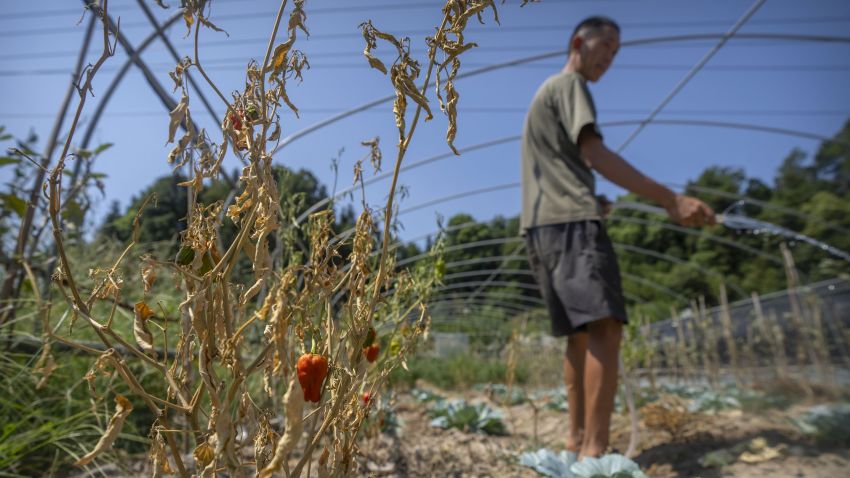Chicken farming in the Chinese province of Sichuan is a challenging endeavor even in the most pleasant weather conditions. So when temperatures hit a record 104 degrees this week, a female farmer there simply broke into tears. Shakily filming her poultry flock, she panned her camera over piles of dead chickens that had collapsed when the generator to her coops had burned out. Elsewhere in the province, another farmer glumly poked at her hens as they listlessly flopped to the ground. “They’re supposed to be for laying eggs,” she said, hoping that the tiny glass vials of medicine she had administered to them might ease their discomfort.
All over Sichuan, which is regarded as China’s breadbasket, farmers are sounding the alarm about the heat wave and resulting water scarcity across the province. Song Kaixiong, a farmer who grows grains like sorghum, rice, corn and soy, described his harvest in bleak terms in an interview with Sixth Note: “It’s not a question of whether they can be sold or not, there’s just no produce … the corn that survives now has no kernels, and the soybeans have no pods.” Consumers will not feel the pinch on staple crops like Song’s immediately, due to China’s ample grain reserves. However, vegetable prices in Chengdu’s supermarket chains have already risen by as much as 30 percent.
During the Great Leap Forward, a failed economic revitalization campaign undertaken by former Chinese leader Mao Zedong in 1958-1962, government policy prioritized urban industrial hubs at the expense of rural regions’ food supplies. In order to bolster Communist Party narratives, grain products were sent to cities centers hubs to feed officials. As a result, during difficult growing seasons, China’s rural populations were left to starve, resulting in more than 30 million deaths and the widespread development of disabilities resulting from malnutrition.

